
Impact stories of the Alt Protein Project
With more than 70 university groups worldwide, student leaders of the Alt Protein Project accomplish new feats every day across our five core objectives: education, research, innovation, community, and awareness.
Overview
The Alt Protein Project (APP) community has expanded from five pilot universities to over 70 universities in 20 countries since its inception in 2020, and the resulting impact on the alternative protein ecosystem has grown alongside it. Scroll through this impact page for a glimpse at the incredible alternative protein accomplishments students are driving forward on their campuses and beyond.
Education
Student leaders of the Alt Protein Projects are making waves by creating their universities’ inaugural modules, courses, and degree programs on alternative proteins. From UNC’s Cellular Agriculture Revolution course (offered annually since 2022) to the Protein Diversification track in EIT Food’s Master in Food Systems, the APP is creating the training infrastructure to educate hundreds of new students each year on the future of food.
Thirteen unique alternative protein courses, with reiterations for these courses:
- Stanford: Rethinking Meat
- Johns Hopkins: Future Food Manufacturing
- Tel Aviv: Cultivated Meat and Plant-Based Meat
- NMBU: Alternative Proteins
- UNC-Chapel Hill: The Cellular Agriculture Revolution
- Federal University of Minas Gerais (UFMG): Cellular Agriculture with a Focus on Cultivated Meat
- Bayreuth-Kulmbach: Science, Law & Society: Food Innovations and Alternative Proteins
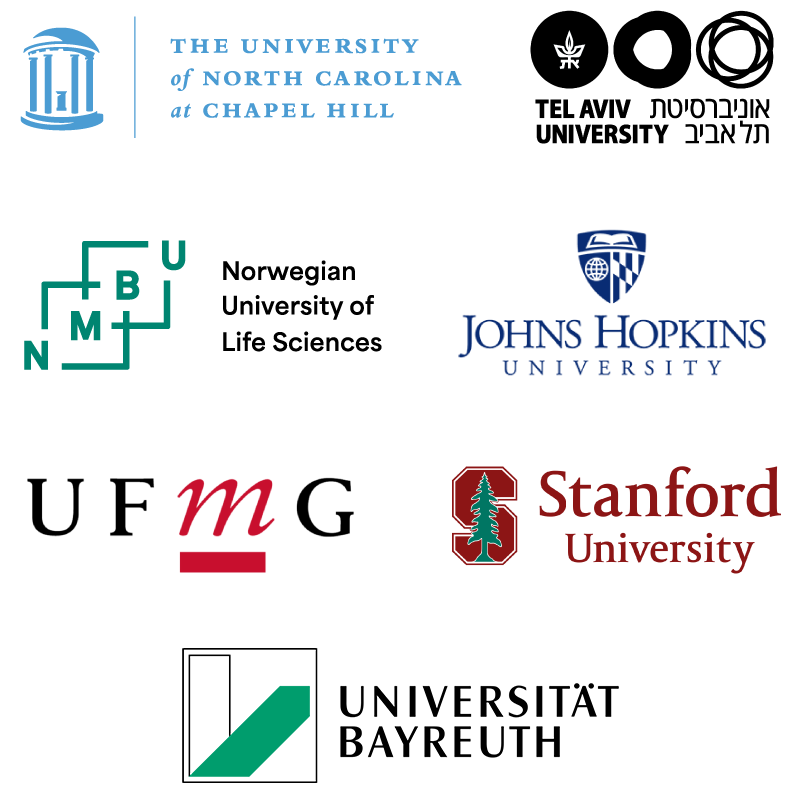

The UFMG APP team knew they wanted to design a course that gave students a both fun and practical experience reflecting the innovative nature of the alternative protein field. The resulting for-credit course, Cellular Agriculture with an emphasis on Cultivated Meat, ends with a group project in the style of the TV show Shark Tank, rather than final exams. Students in groups of 3-5 invent and pitch a new alternative protein innovation that addresses real life challenges within the industry. In addition to this course, the UFMG APP conducts educational outreach to local middle and high schools. Read more about how the UFMG APP team kickstarted these new student-driven education programs alongside faculty champions in their GFI spotlight blog here.
“Brown empowers students to be intellectually entrepreneurial, allowing us to shape our education through passion and curiosity. I’m thrilled to bring this vision to life by co-creating ‘The Future of Food,’ Brown’s first-ever for-credit course on alternative proteins, where students can explore the science and impact of sustainable food systems.”
-Julia Krausz, president of the Brown APP

Awareness
Raising awareness is essential for bringing new audiences and resources into the alternative through influencing new faculty researchers to enter the field and protein orbit. Student leaders are using their platforms to invite diverse communities — from middle schoolers to government officials — into the future food conversation.
University of Nigeria APP brings alternative protein awareness to Nigeria
The University of Nigeria APP group hosted Nigeria’s first alternative protein symposium on their campus in February of 2024: “The role of students and academia in the transition to a sustainable protein future in Nigeria.” During the two day event, over 300 in-person attendees from across Nigeria learned about the three pillars of alternative proteins through a full itinerary of speakers, panels, networking sessions, and delicious food samples. Since this event, the Nigeria APP group has continued to garner excitement around alternative proteins on their campus and within their greater community through webinars, cookouts, and research workshops.
Canadian APPs collaborate to host country’s first alternative protein symposium
In March of 2025, the three APP groups from Canadian universities (McMaster University, the University of Toronto, and University of Waterloo) collaborated to launch Canadian Alternative Proteins Symposium (CAPS)—the nation’s first alternative protein symposium! In addition to providing delicious food and incredible speakers, the APP student organizers also worked with New Harvest and the Consecon Foundation to launch a $25,000 CAD student cellular agriculture research fund at their event.
Conferences
APP students have planned and executed over eight different conferences and symposiums, amassing over 1,000 attendees, including:
- University of Colorado, Boulder: Global Student Symposium
- Duke University and University of North Carolina, Chapel Hill: Making Alt Proteins the New Default (2022, 2023)
- San Diego State University: The San Diego Alt Protein Summit
- Swiss Federal Institute of Technology Lausanne (EPFL): Meat the Future
- University of Nigeria, Nsukka: Role of students and academia in the transition to a sustainable protein future in Nigeria
- Tufts University, Boston University, Brown University: Food 4 Thought Festival
- Universidade Estadual de Campinas, Federal University of Minas Gerais: 1st Conference on Alternative Proteins
- University of Toronto, University of Waterloo, McMaster University: 2025 Canadian Alternative Protein Symposium
Media
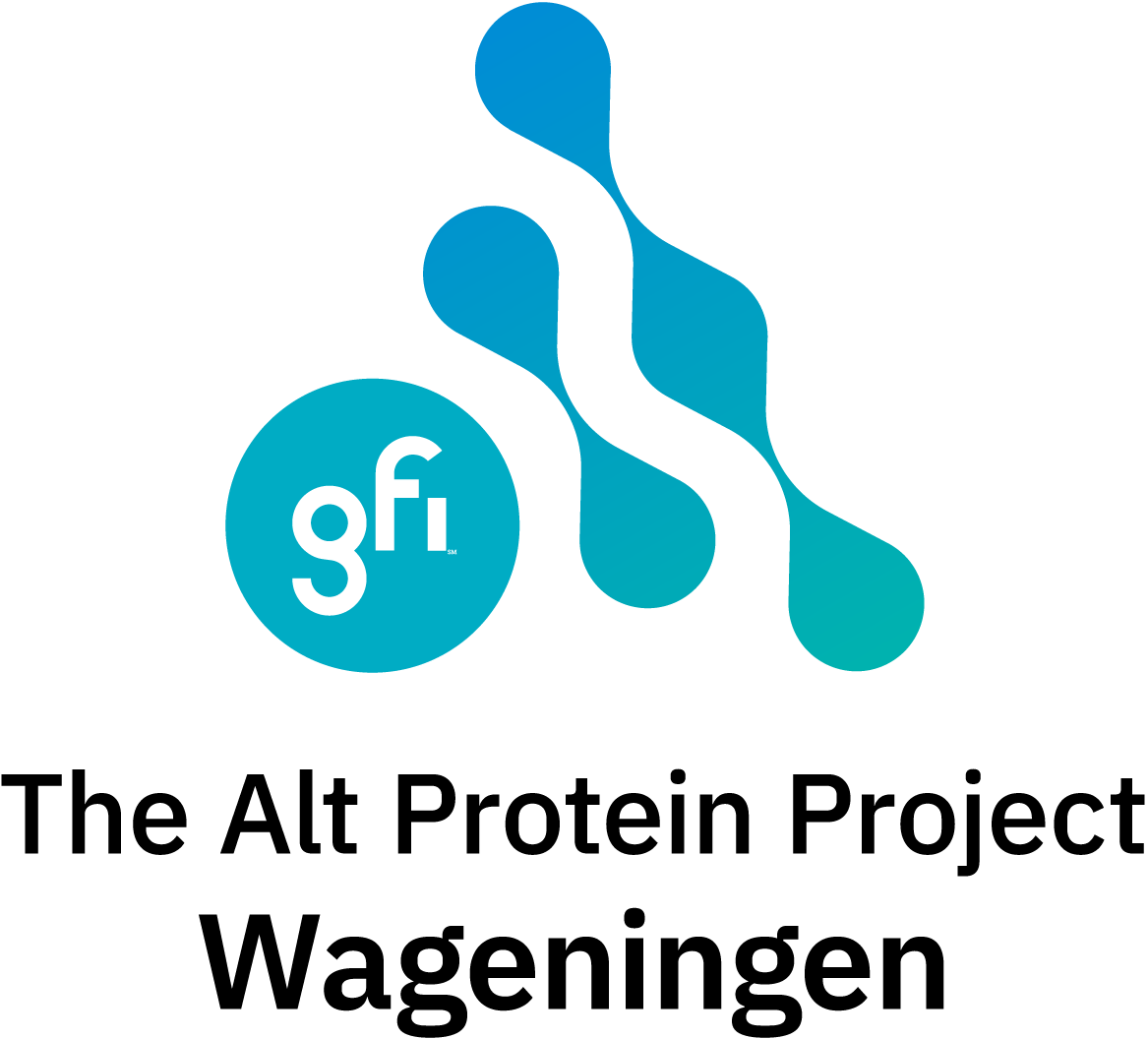
Wageningen
Now in its fourth season, the Wageningen Alternative Protein Podcast invites new guests from across the alternative protein sector to share their unique insights and expertise with its hosts and listeners.
Research
APP students are paving the way for scientific progress in alternative proteins. They’re driving groundbreaking research, both through influencing new faculty researchers to enter the field and through their own student-led research.
Alternative protein research
projects
secured in research grants by APP students
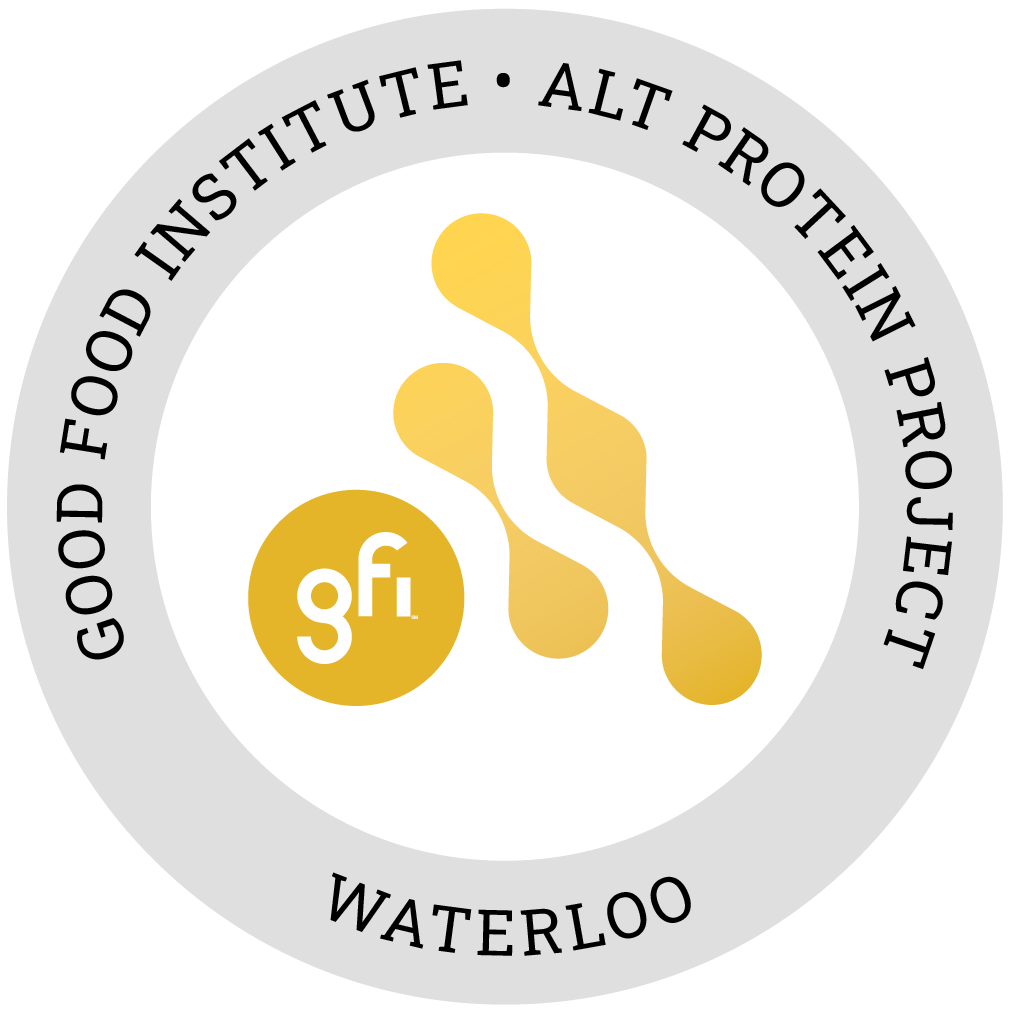
Waterloo APP wins grants from GFI, New Harvest for computational cultivated seafood research
As undergraduates, the Waterloo APP team successfully won research grants from both GFI and New Harvest. Their winning proposal focused on the intersection of alternative proteins and AI: Single-Cell Multiomic Profiling for Cultivated Seafood: Antibody Development and Understanding Differentiation.
Not only did these students successfully secure research grants, they also introduced several new faculty researchers into the field to do so. These new AP researchers come from adjacent fields including:
- Fish immunology
- Health studies
- Biology
- Applied math

UChicago APP student leaders catalyze university’s first wave of alt protein research
In 2024, the UChicago APP team boldly began the University of Chicago’s first-ever alternative protein research by developing their student-led Research Accelerator Program (RAP). In the first iteration of the RAP, the UChicago APP team recruited graduate students and upperclassmen to lead four different research groups that focused on high-priority topics such as chitosan and glutenin-based scaffolding for cultivated beef and methods to protect against omega 3 fatty acid oxidation.
In 2025, the RAP returned with three projects focused on shrimp cell line characterization, omega 3 production by precision fermentation, and growth factor economics. The program continues to thrive, thanks to funding from GFI and its donors, an impressive amount of student interest (even more than the group can accomodate), and new faculty support and lab space.
Through the RAP, the UChicago APP demonstrated how students can make their own alternative protein research opportunities, even when there are no existing alternative protein research projects or faculty champions on campus (yet).
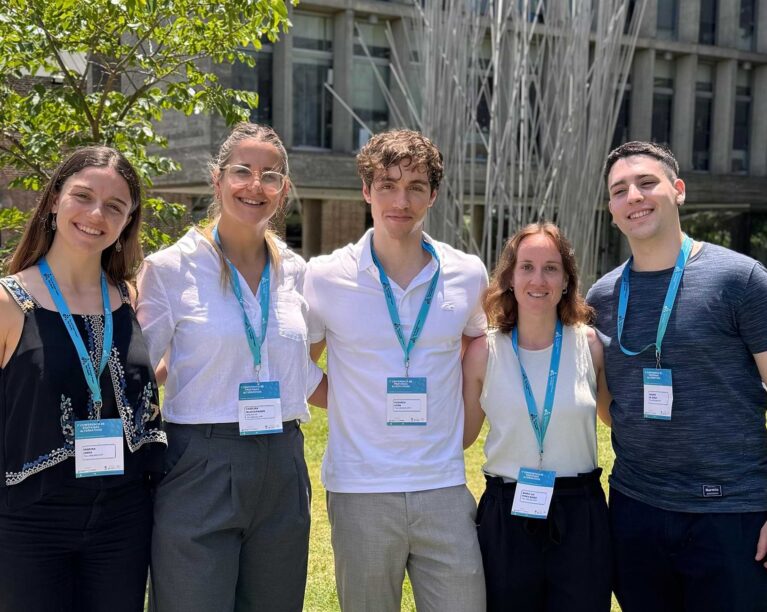
Blog
How the Alt Protein Project is growing a brighter food future in Argentina
The UNSAM Alt Protein Project has emerged as a leading convener for alternative proteins in Argentina.
Innovation
APP students are determined to enter and innovate within the alternative protein field by bridging the gap between academia and industry. In addition to the internships, co-ops, and jobs they secure, they organize hands-on, industry initiatives including company site tours and new product tastings/sensory evaluations. Some students even develop their own alternative protein start-ups! These academia-industry partnerships always prove to be mutually beneficial: students gain direct experience with the alternative protein field, while participating organizations gain insights from the younger generation and connect with the future leaders of the field.
alternative protein jobs & internships secured by APP students
Dozens of companies have partnered with APP groups for sensory panels, site tours, internships and jobs, panels, guest lectures, and more, including:
- Impossible
- Beyond
- Tender Foods
- Wildtype
- TurtleTree
- Mission Barns

Armaan Dhanda and Samyak Baid, presidents of the NUS APP and co-founders of Anomaly Bio
In addition to leading the NUS APP group in Singapore, Armaan Dhanda and Samyak Baid are also co-founders of Anomaly Bio, a biotechnology start-up using fermentation for ingredient development
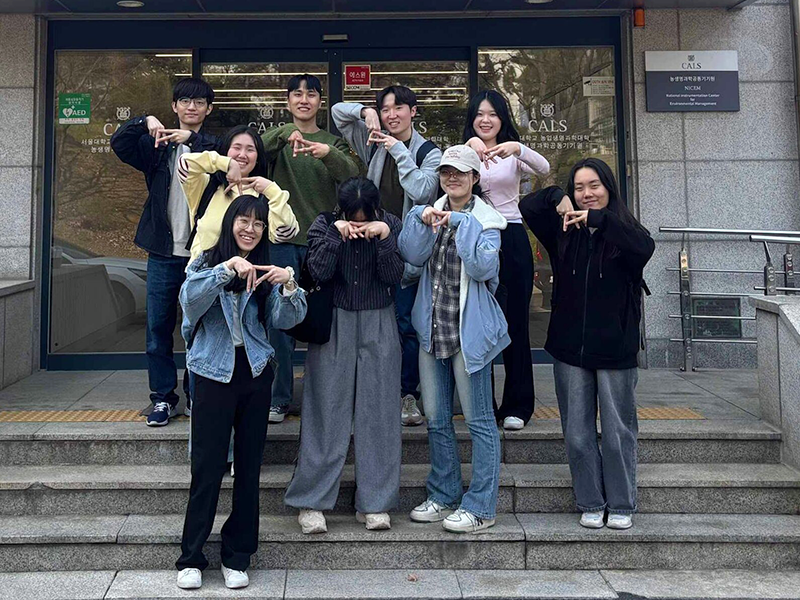
Seoul National University launches industry consulting program
In their first year as an official APP group, the Seoul National University (SNU) APP team launched a consulting program that connects excited students with industry partners in the Korean alternative protein ecosystem. In the first iteration of this program, student teams executed customized consulting and research projects for four different companies: Viroute, Yeastech Bio, Ercohs, and LMK.
APP Alumni take the field by storm
Many program alumni work in the alternative protein field after graduating, applying the knowledge and experience from the APP in their exciting, mission-driven careers. Read a few alumni spotlights here:

Alt Protein Project Alumni: Where are they now?
Explore how Alt Protein Project alumni are building community, uplifting new ideas, and shaping their careers.
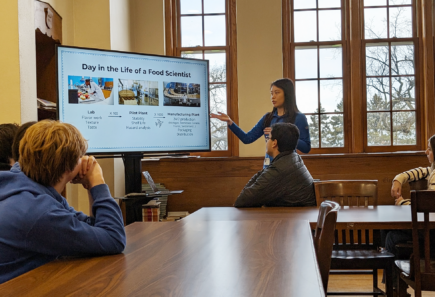
Alumni of the Alt Protein Project: cultivating key skills beyond the classroom
How an engineer and a food scientist built practical skills through experiential learning opportunities.
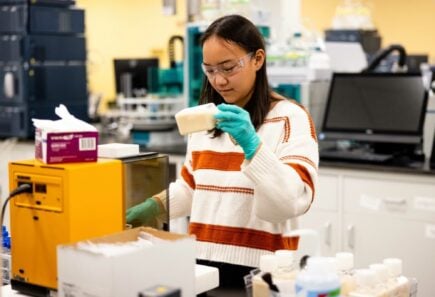
Alumni of the Alt Protein Project: where are they now?
Discover the journeys of two emerging scientists, their entry into a cutting-edge field, and what helped them get there.

Support the next generation of alternative protein leaders
The Alt Protein Project’s impact would not be possible without the generous support of GFI donors. Are you interested in supporting the next generation of alternative protein change-makers? Consider making a gift and joining our global community of donors.
Connect with us
Are you a student passionate about growing the alternative protein ecosystem at your university and around the world? Learn how to get involved with the Alt Protein Project and connect with us! We also have communities for those excited to become industry partners or educators of the APP. Be sure to follow us on LinkedIn for the latest news and events!
Related resources
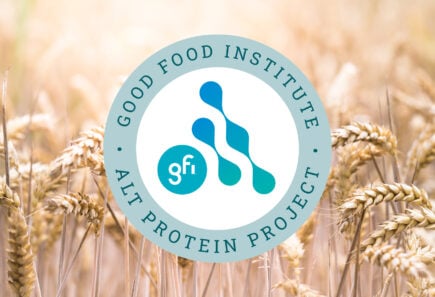
The Alt Protein Project
Students play a pivotal role in building the alternative protein ecosystem. Explore how you can start a student group at your university to accelerate the global transition to the future…

The Alt Protein Project Directory
Explore our database of Alt Protein Project student groups working to build the future of food at universities around the globe.

The alt protein student resource hub
Use this repository of helpful tools, templates, tips, and tricks to turn your university into an engine for alternative protein innovation.
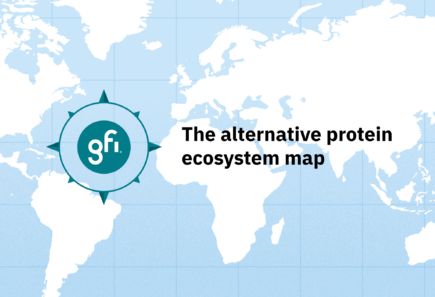
The alternative protein ecosystem
Discover global hubs of alternative protein innovation with our interactive map.
